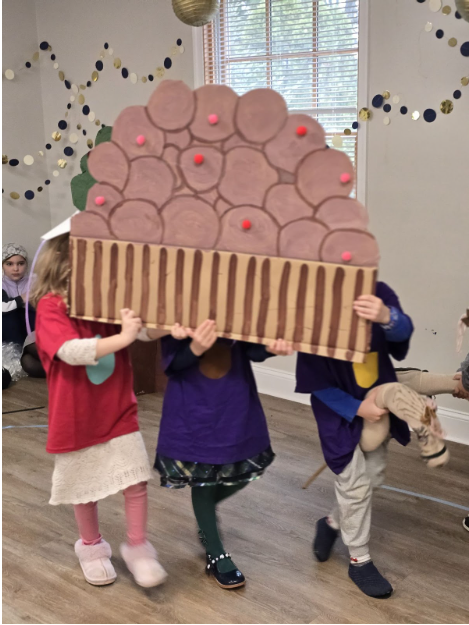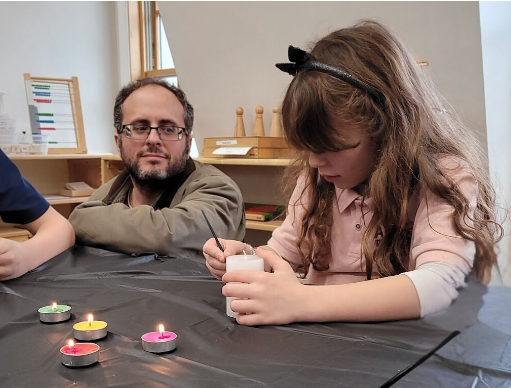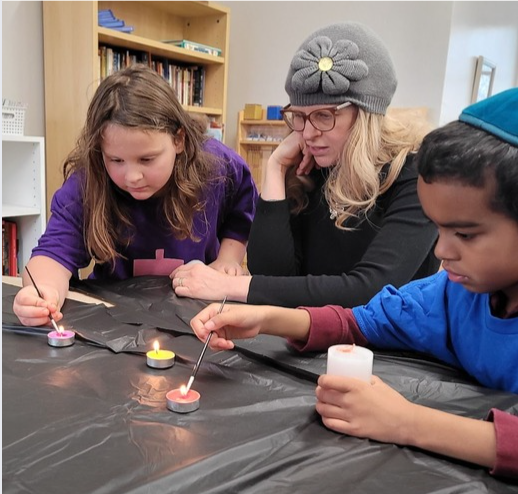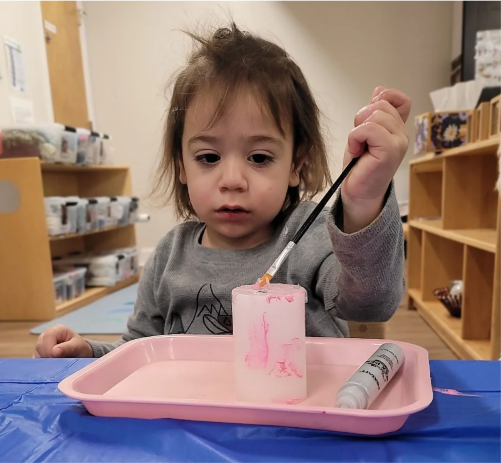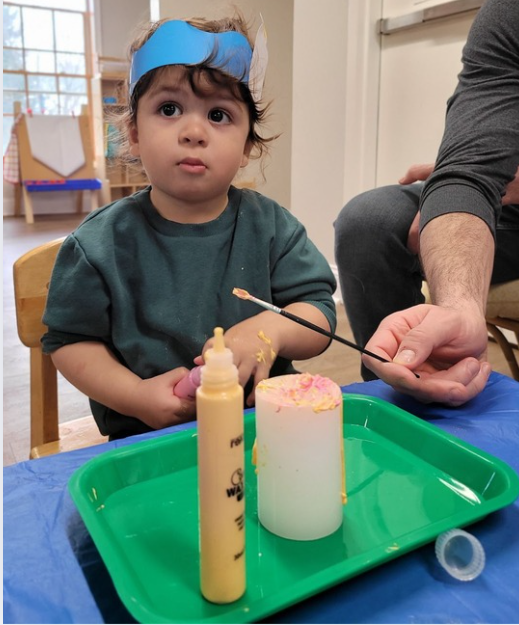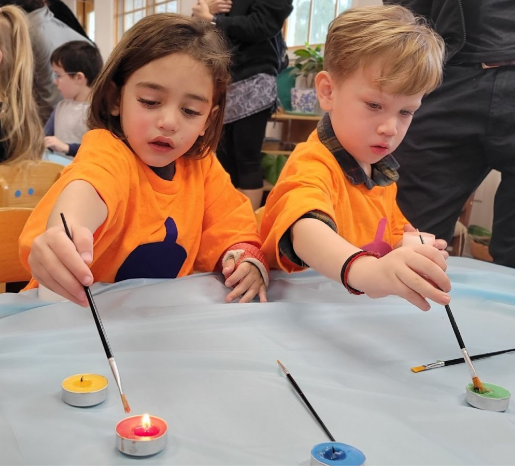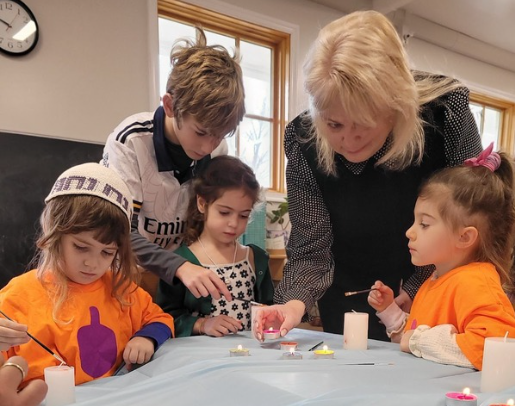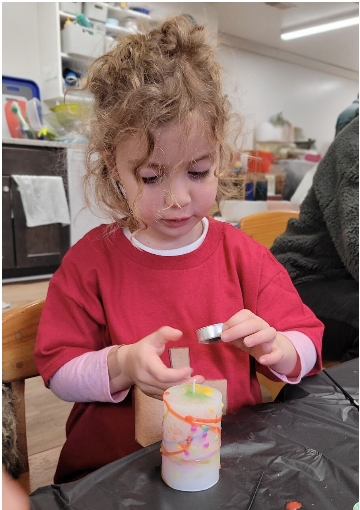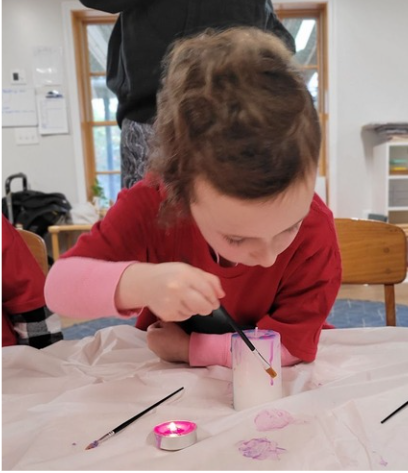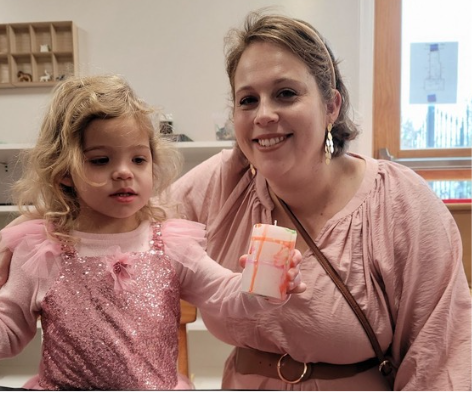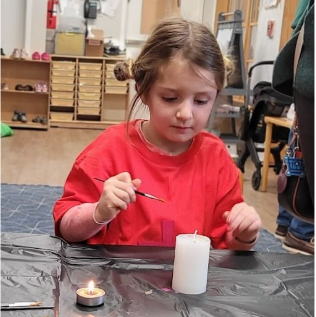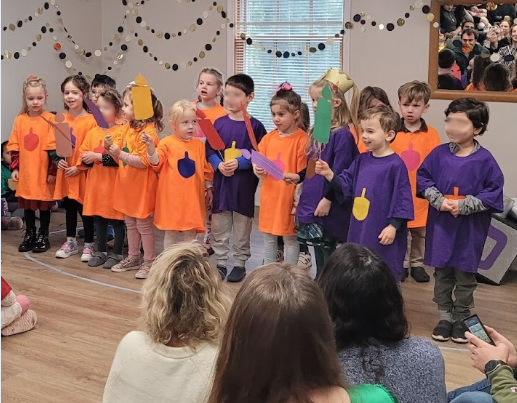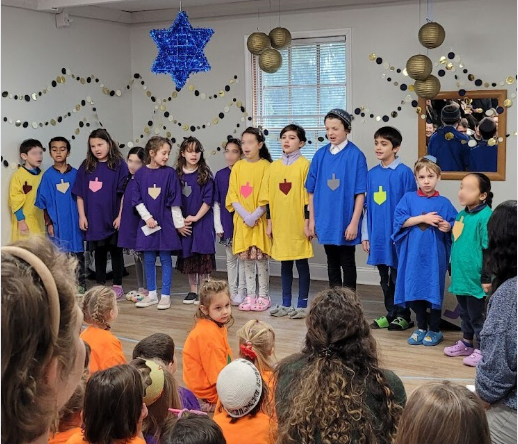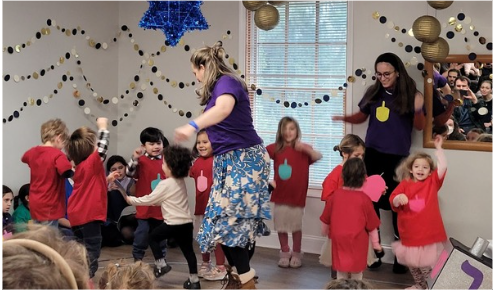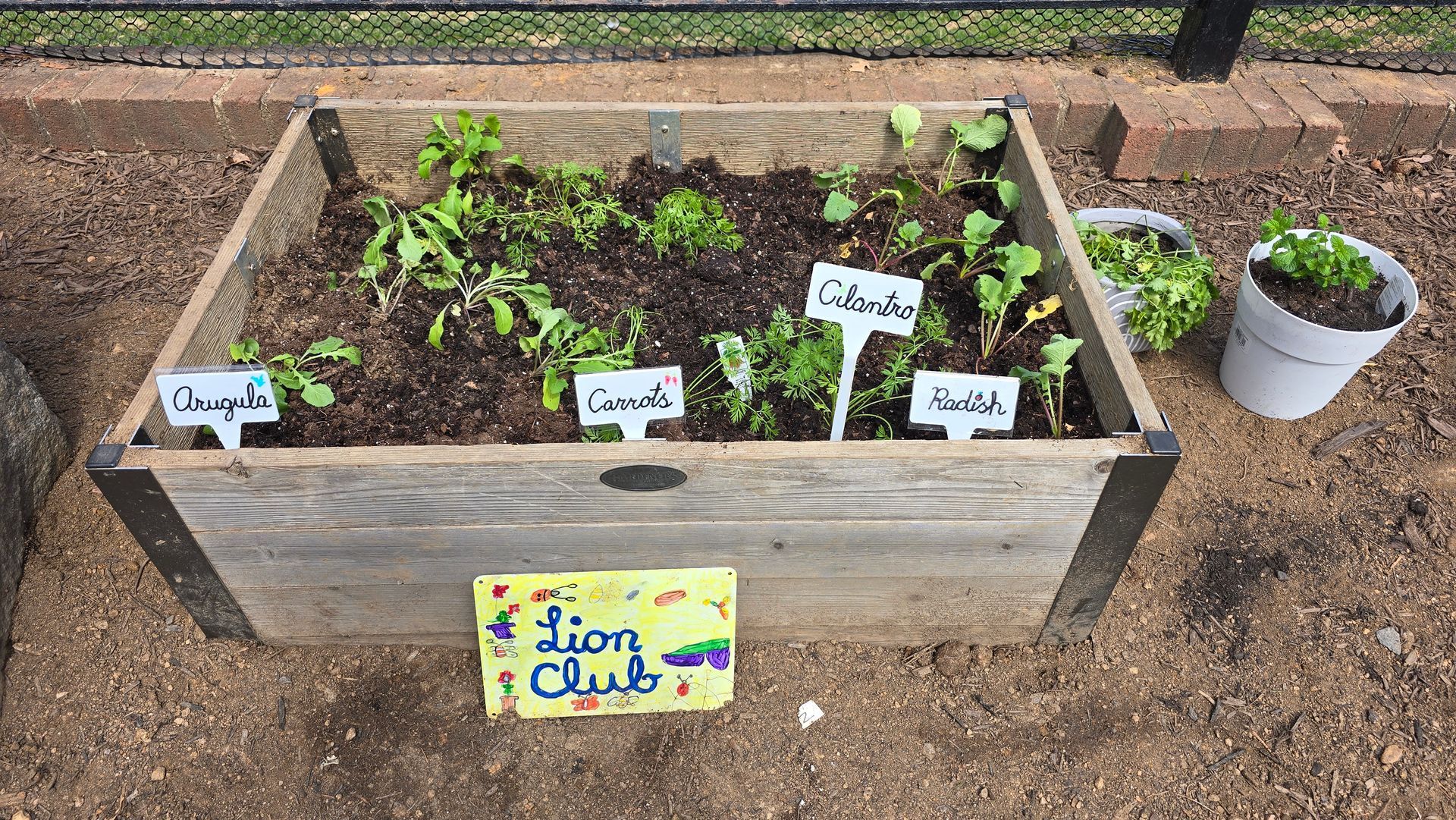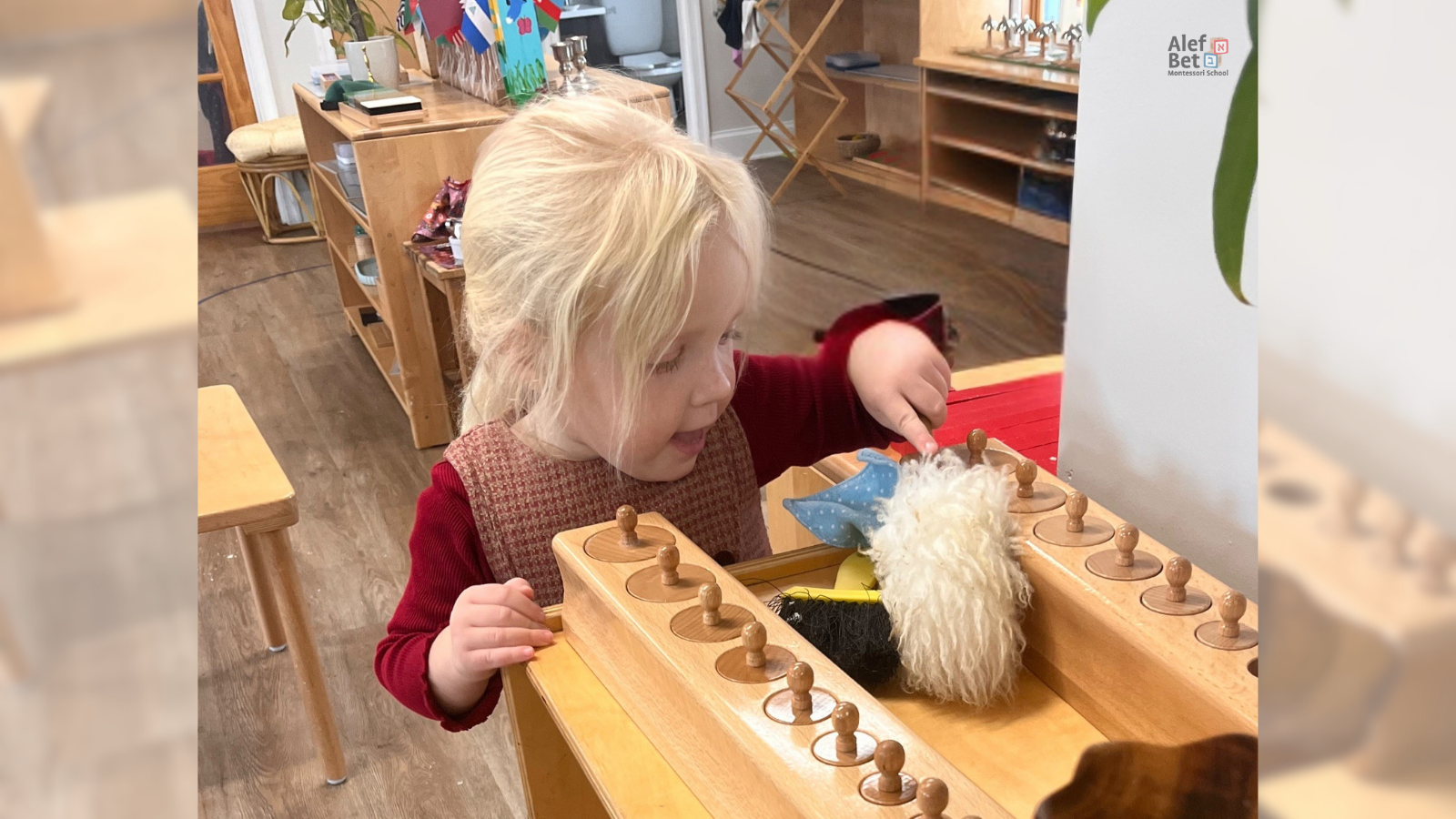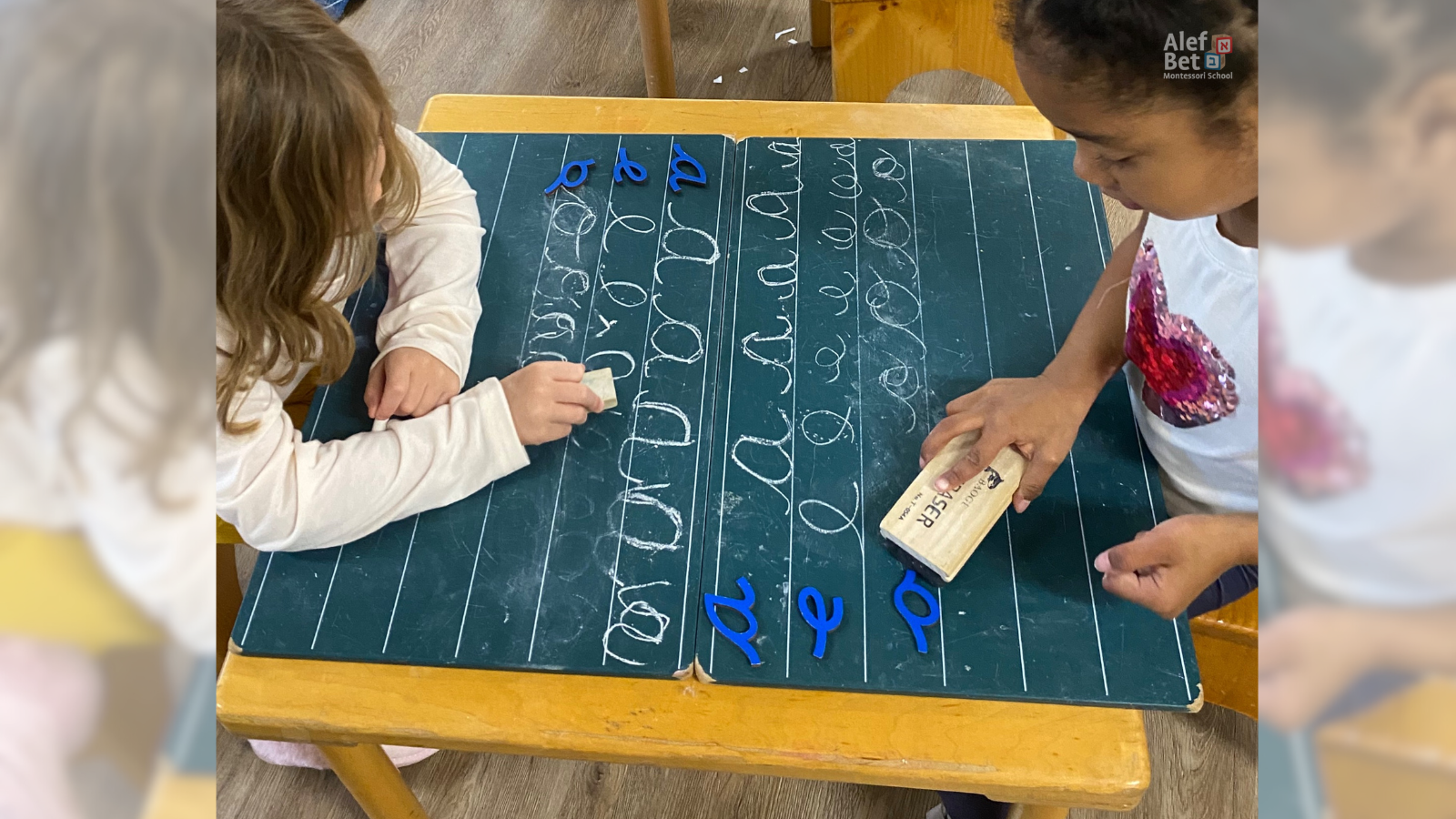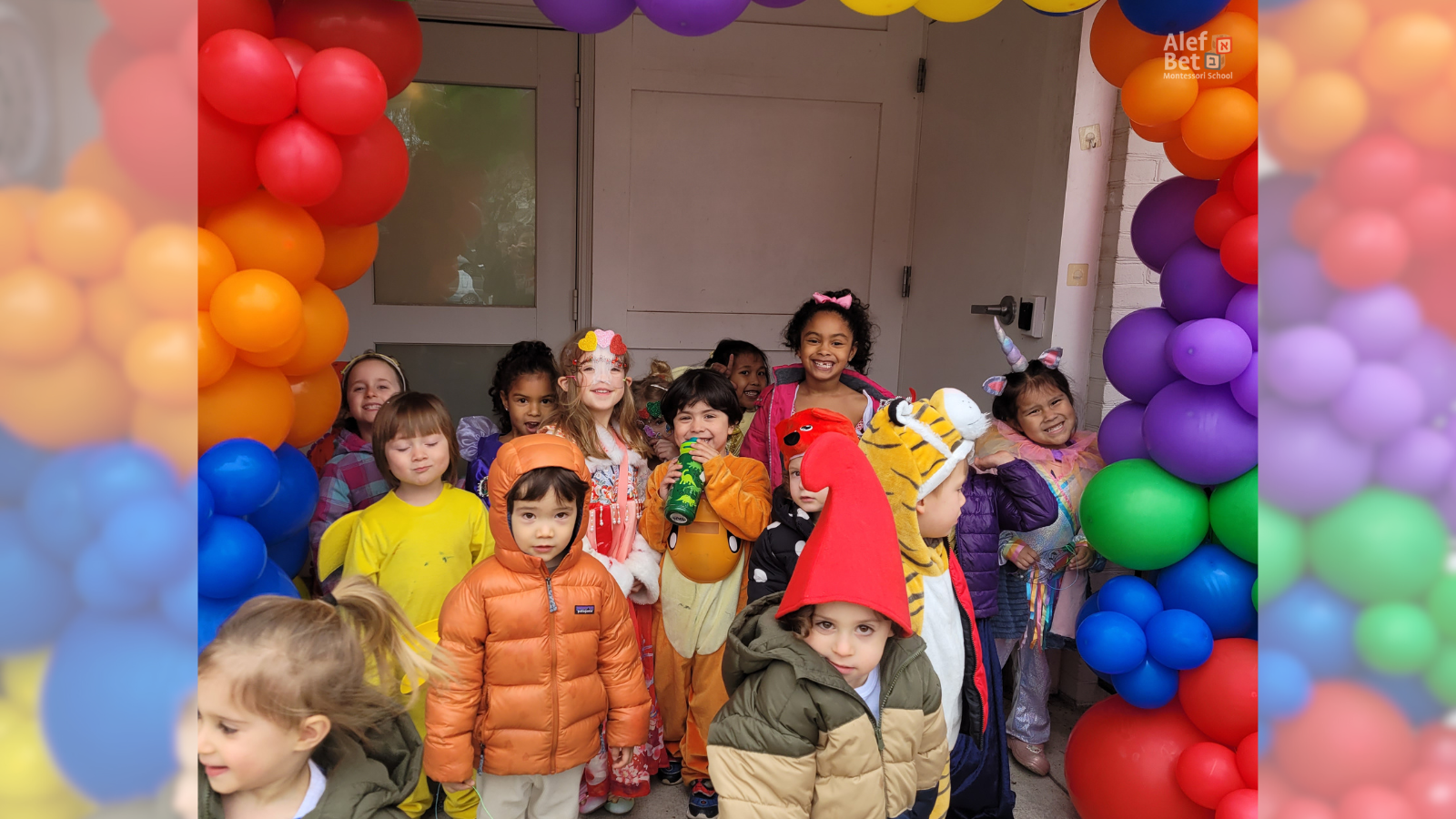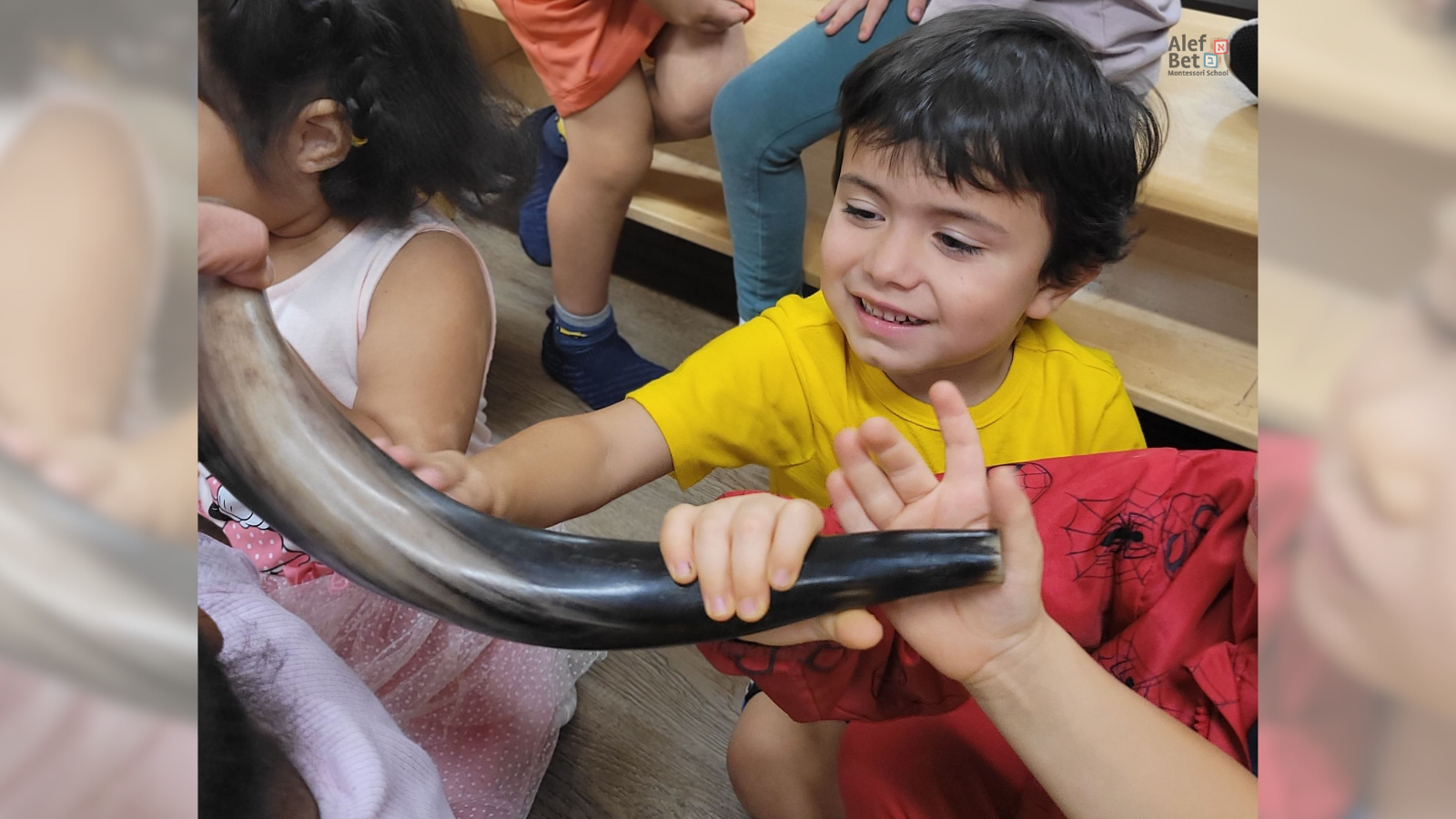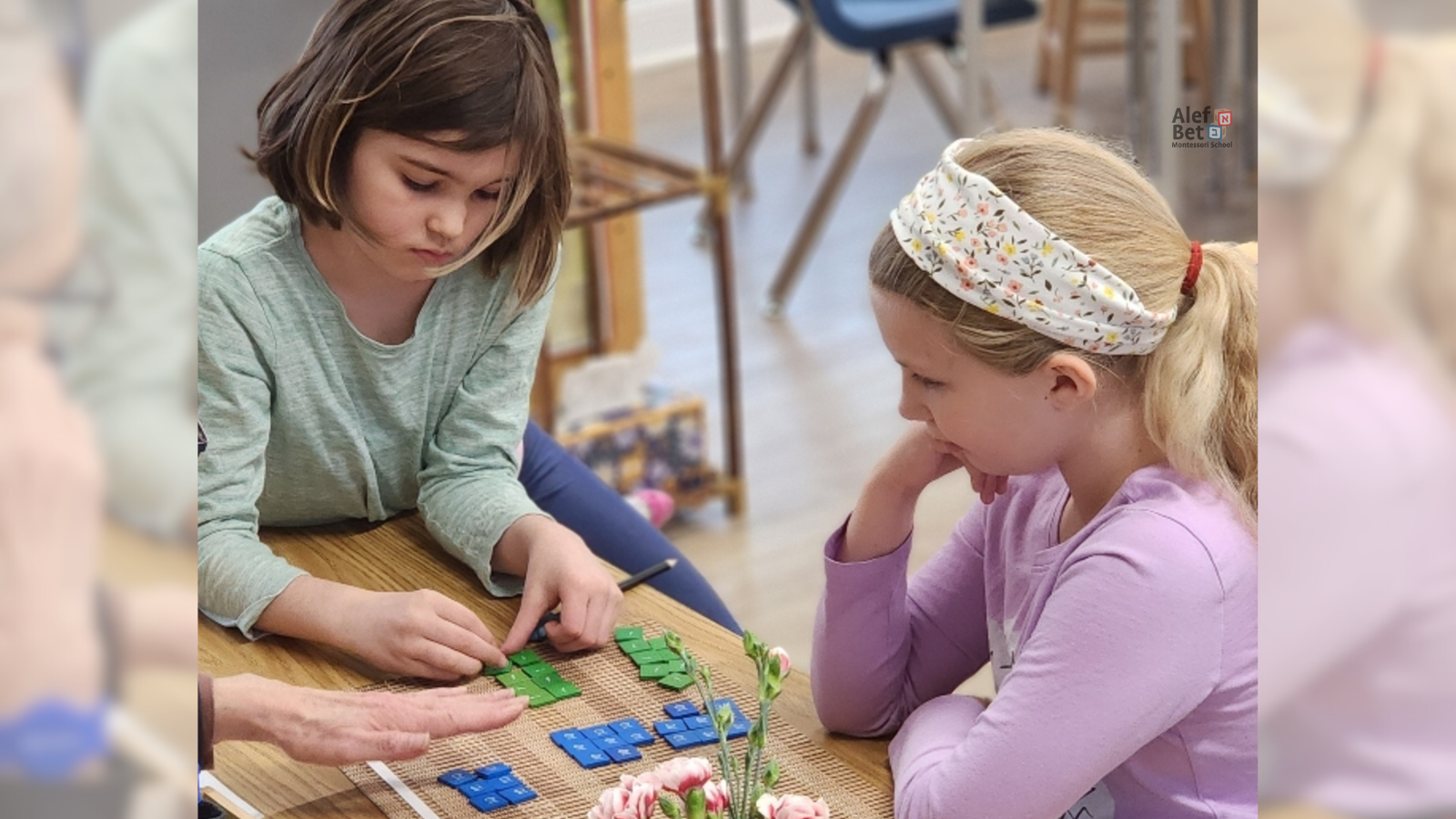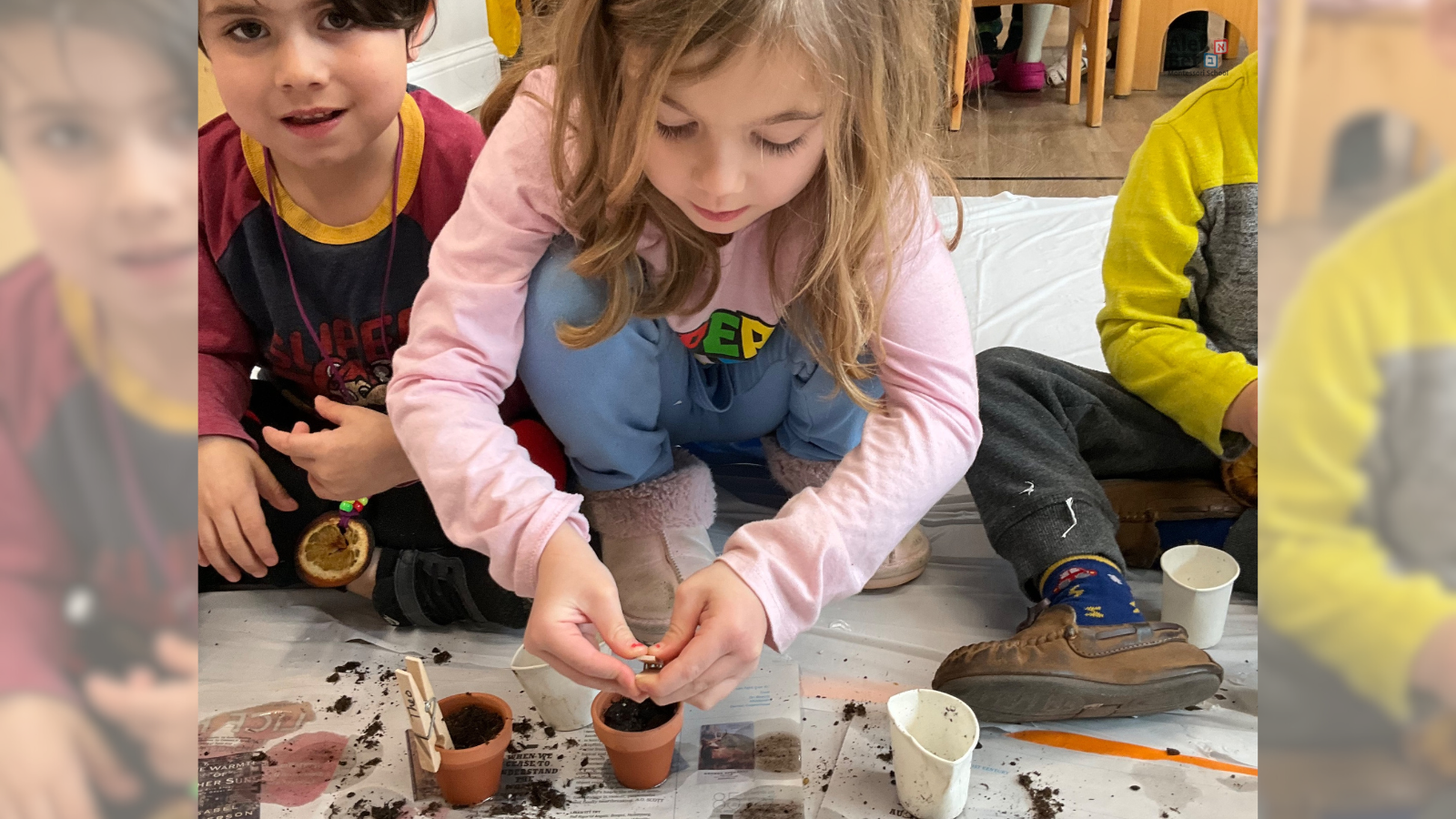A Celebration of Light: Chanukah at Our School
Music, Meaning, and Hands-On Fun
As the mornings grow colder and the days shorter, the light of Chanukah reminds us of the miracles, big and small, that brighten our lives. This week, our school came alive with that light as we welcomed grandparents, parents, and special guests to celebrate together. It was a beautiful reminder of the connections that bind us as a community.
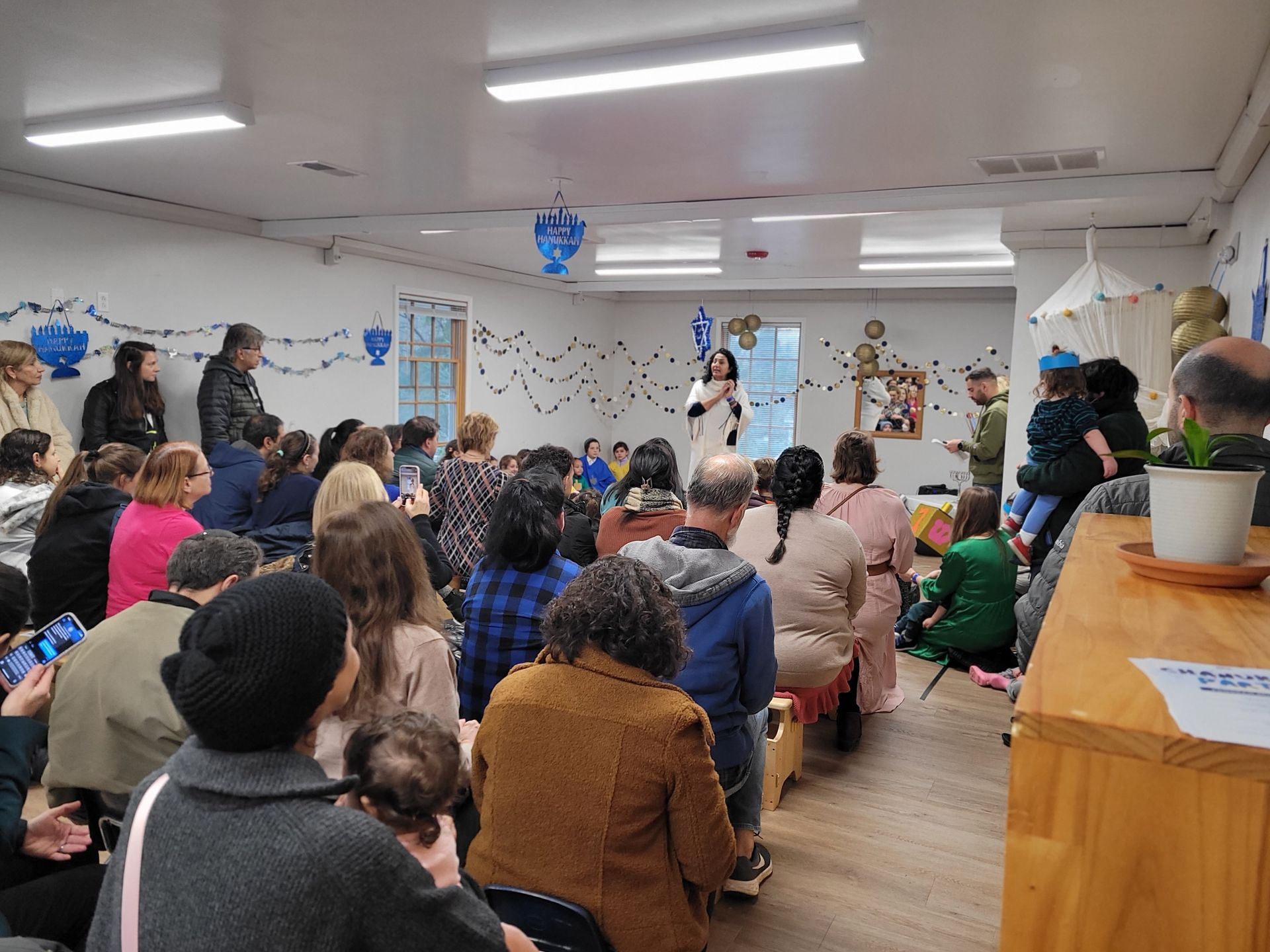
Lighting the Way with Music and Laughter
Our celebration began with heartfelt opening remarks from our Director, who set the tone for the morning by reflecting on the deeper meaning of Chanukah: the power of perseverance and the impact of even the smallest acts of light.
Next came a highlight of the day: two of our elementary students led us in a meaningful candle-lighting ceremony before inviting the rest of their class to join them in song.
Each class performed a song that captured the spirit of Chanukah. Families delighted in watching their children shine, each contributing their own unique light to the celebration.
Enjoy the songs from the event and let the music bring the light of the season into your home.
In addition to the songs, students delighted the audience with two creative plays.
Our Kindergarten Arayot, with some help from Elementary, proudly performed a charming play about a baby dragon and the brave Maccabees who saved the day. Their enthusiasm and teamwork were a joy to watch.
Following that, students from our Elementary program presented a retelling of the classic Hebrew song about Chana Zelda and Rabbi Kalman. Their comedic timing and lively performance brought smiles and laughter to all.
Hands-On Fun in the Classrooms
After the performances, families joined their children in the classrooms for a creative and meaningful Chanukah activity. Together, they designed their own candles using colorful melted wax from tealights to paint beautiful patterns onto white pillar candles.
The experience was a joyful exploration of creativity and tradition. Laughter and concentration filled the rooms as both children and adults took pride in their creations, each candle a unique work of art. Guests also enjoyed delicious סופגניות-sufganiyot (donuts) and other treats, rounding out the festivities with sweetness.
Slide title
Write your caption hereButtonSlide title
Write your caption hereButtonSlide title
Write your caption hereButtonSlide title
Write your caption hereButtonSlide title
Write your caption hereButtonSlide title
Write your caption hereButtonSlide title
Write your caption hereButtonSlide title
Write your caption hereButtonSlide title
Write your caption hereButtonSlide title
Write your caption hereButtonSlide title
Write your caption hereButtonSlide title
Write your caption hereButtonSlide title
Write your caption hereButtonSlide title
Write your caption hereButton
Carrying the Light Forward
As we head into winter vacation and Chanukah break, we reflect on the light and joy this season brings. Chanukah teaches us that even the smallest light can dispel the deepest darkness. Together, as a community, we share the responsibility of being that light for one another.
May your Chanukah be filled with warmth, love, and the kind of moments that brighten your world.
Chanukah Sameach!
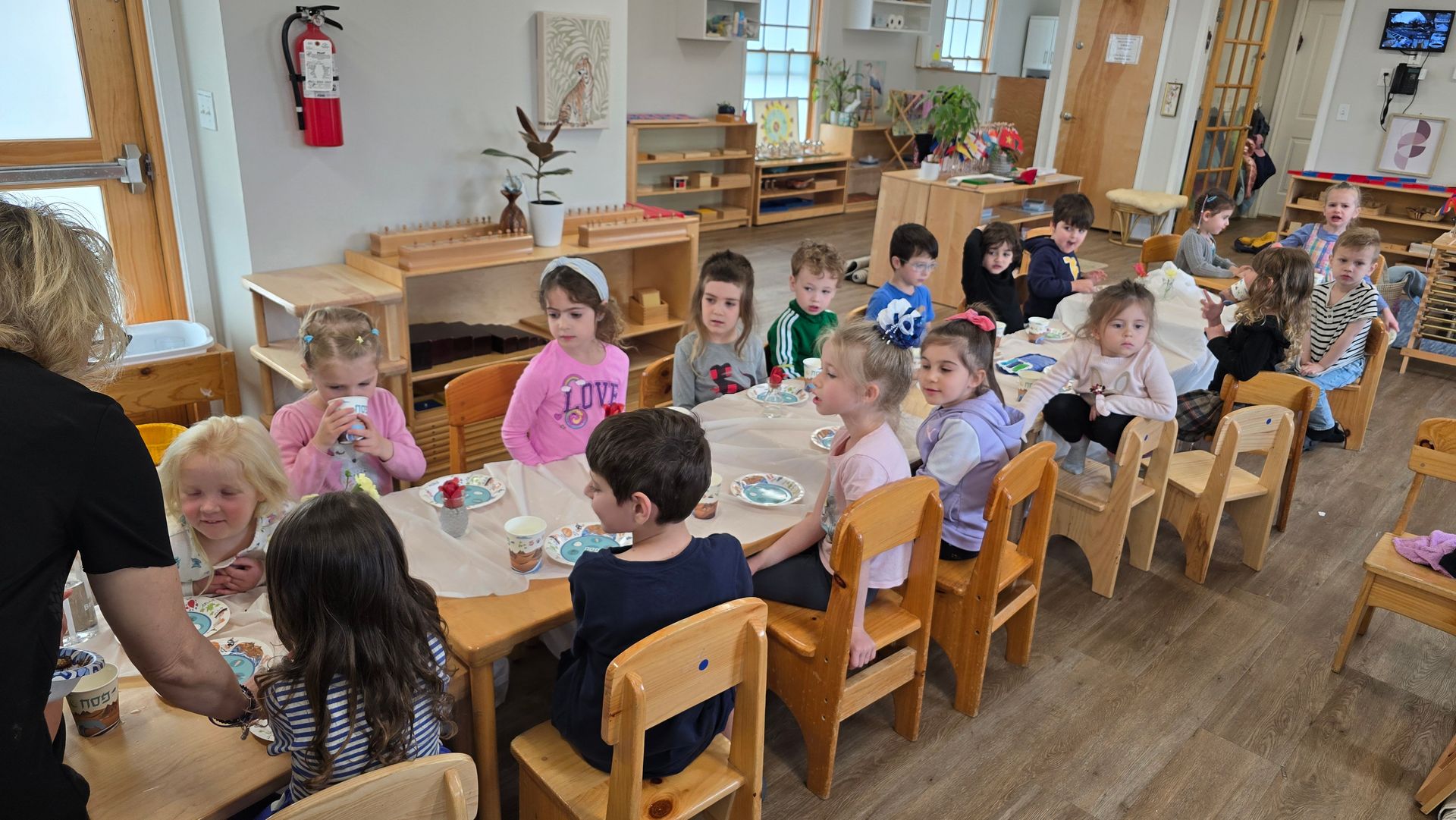
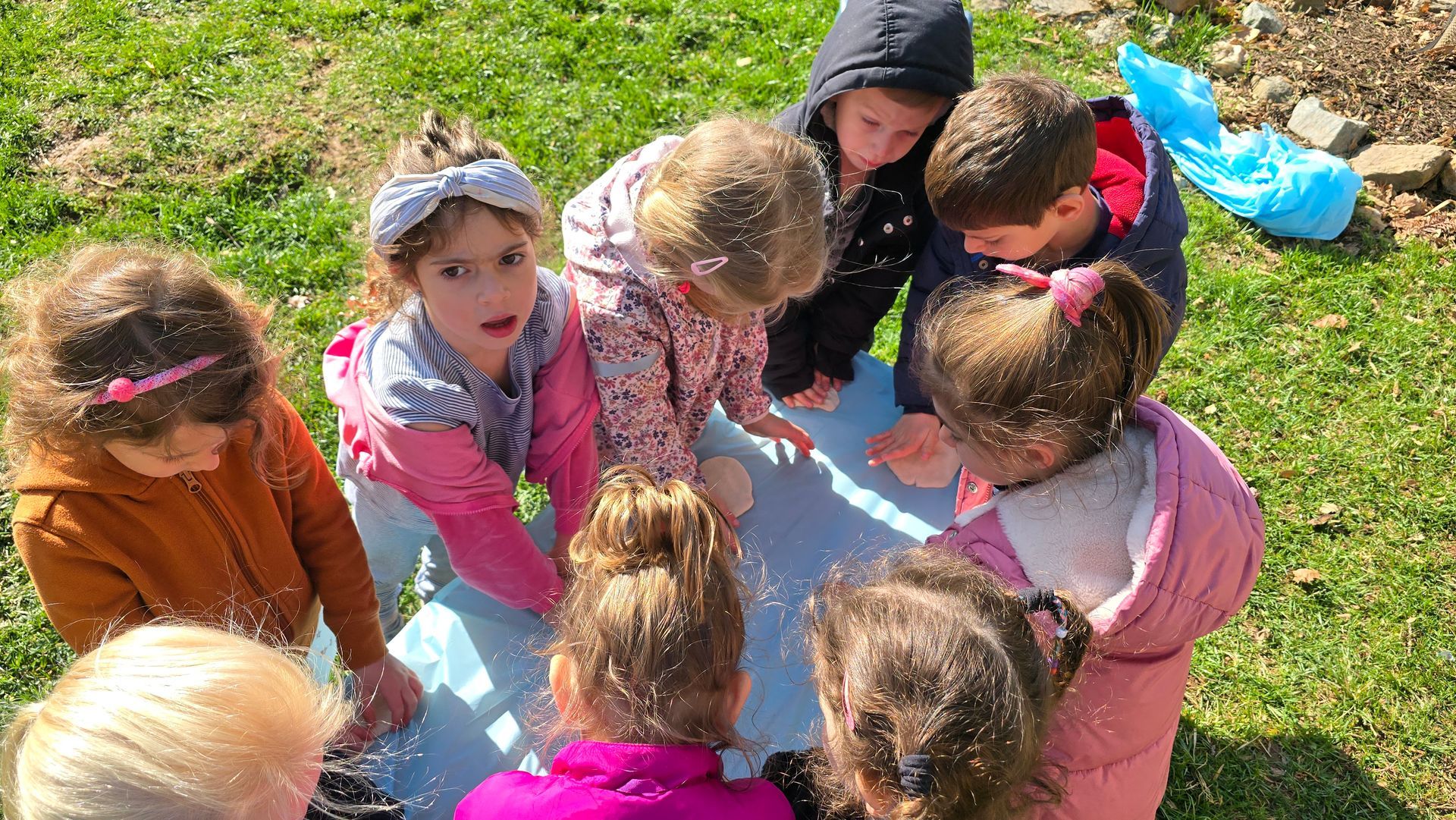
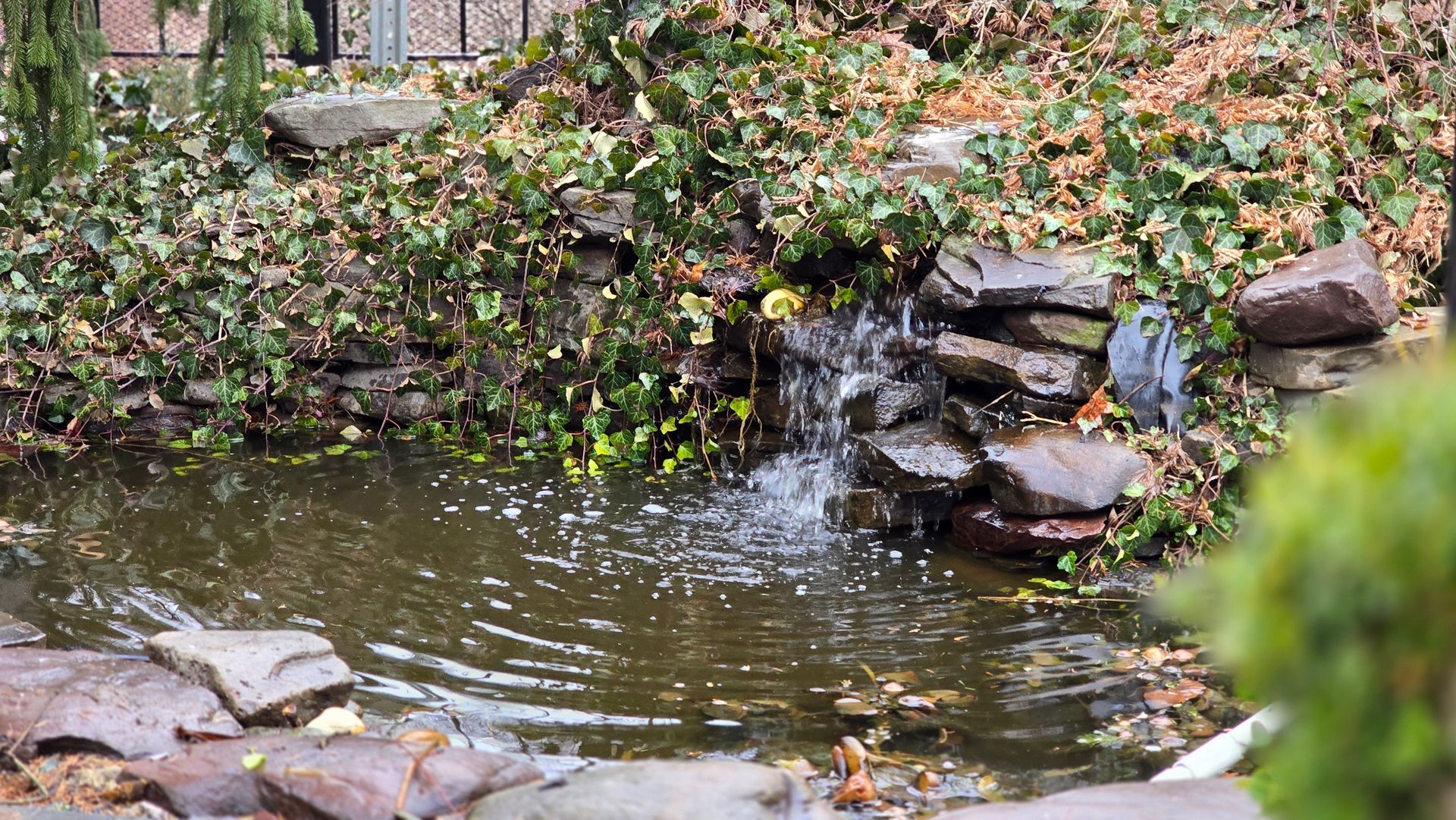
OPENING HOURS
Elementary 8:15 - 3:00
Primary 8:15 - 3:00
Toddlers 8:30 - 2:45
Aftercare 3:00 - 5:00
PROGRAMS
Alef Bet Montessori School
Alef Bet Montessori School
